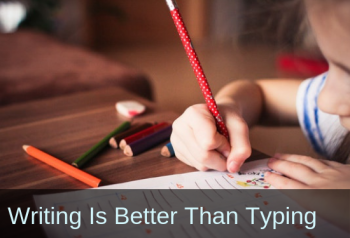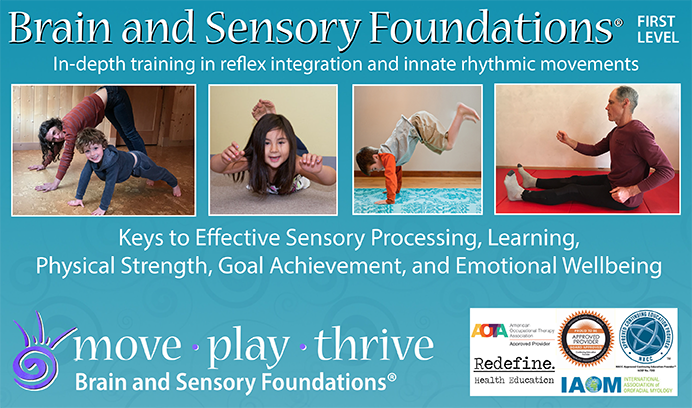Writing is Better than Typing!
by Sonia Story
In this electronic age, is it still important for children to learn handwriting? Yes!
It turns out that pen-and-paper note-taking is more effective and boosts learning: Because writing with a pen is slower than typing, students must “process” while taking notes in order to select the most relevant material (Mueller & Oppenheimer, 2014). Another reason students perform better with longhand notes may be that not only are they processing the material at the outset, they also are moving differently. The brain- stimulating movement-based tasks required in longhand note-taking could help students better comprehend and retain material.
Movement is a key factor in learning, stimulating the brain possibly more than any other activity (Ratey & Hagerman, 2013). We have long known that the cerebellum controls and orchestrates movement, and we also know that the cerebellum plays a role in higher learning processes (Moretti et al., 2003).
Contrasted with electronic note-taking, the brain stimulating movement-based tasks required in longhand note-taking could help students better comprehend and retain material:
- Muscle movements of the hand and fingers required with pen and paper are far more refined and subtle than movements required for typing.
- Writing with a pen, we use a single hand, activating one hemisphere of the brain specialized for this task and likely allowing other parts of the brain to process more efficiently.
- Eye movements are active, converging on the point where the pen touches the paper and tracking the written letters across the page, rather than the imprecise focusing on a screen.
- Eye, head and neck muscles all are more engaged when taking notes by hand, especially when a student looks alternately to the front of the classroom and to the page.
- Having the eyes on a screen can be detrimental and could reduce learning effectiveness (Dunckley; n.d.).
References
Mueller, P., & Oppenheimer, D. (2014). The pen is mightier than the keyboard: Advantages of longhand over laptop note taking. Psychological Science, 25(6), 1159-1168. doi:10.1177/0956797614524581
Ratey, J., & Hagerman, E. (2013). Spark: The revolutionary new science of exercise and the brain. New York: Little, Brown.
Moretti, R., Torre, P., Antonello, R., Cazzato, G., & Bava, A. (2003). The cerebellum and the reading process. New York: Nova.
Victoria L. Dunckley, MD: Psychiatrist, author and screen-time expert. (n.d.). Retrieved from http://drdunckley.com/




